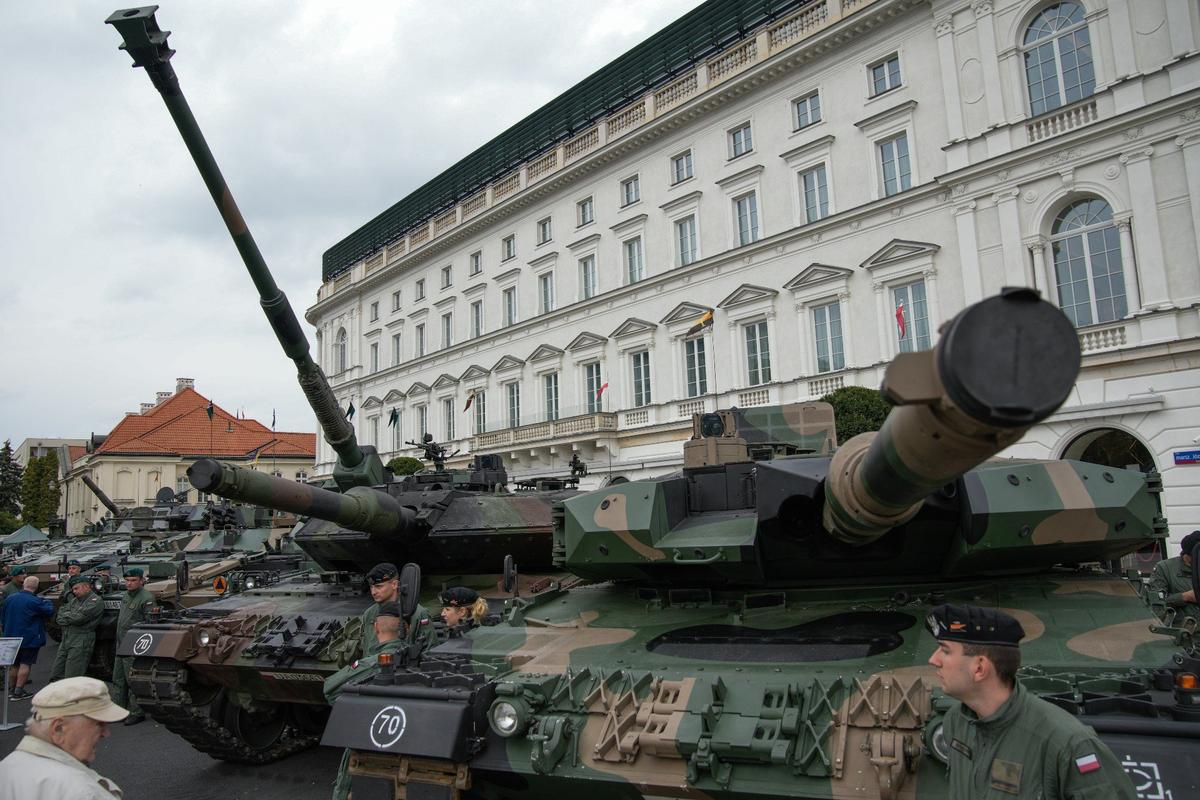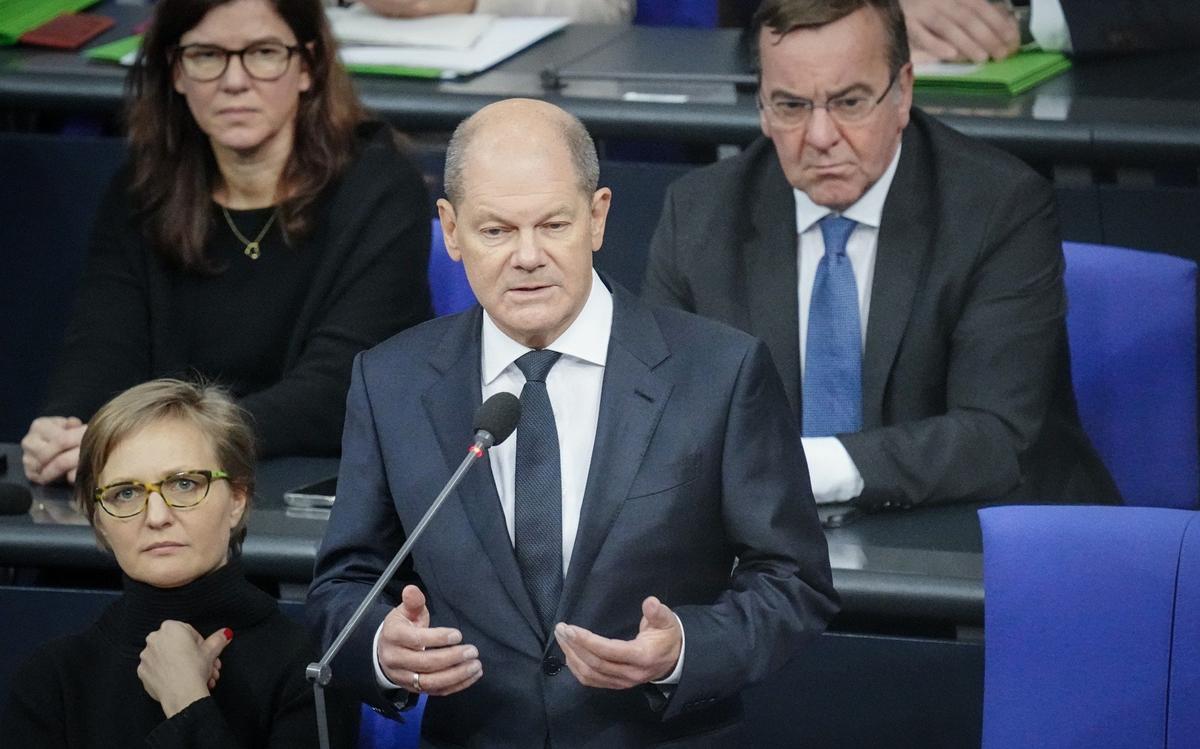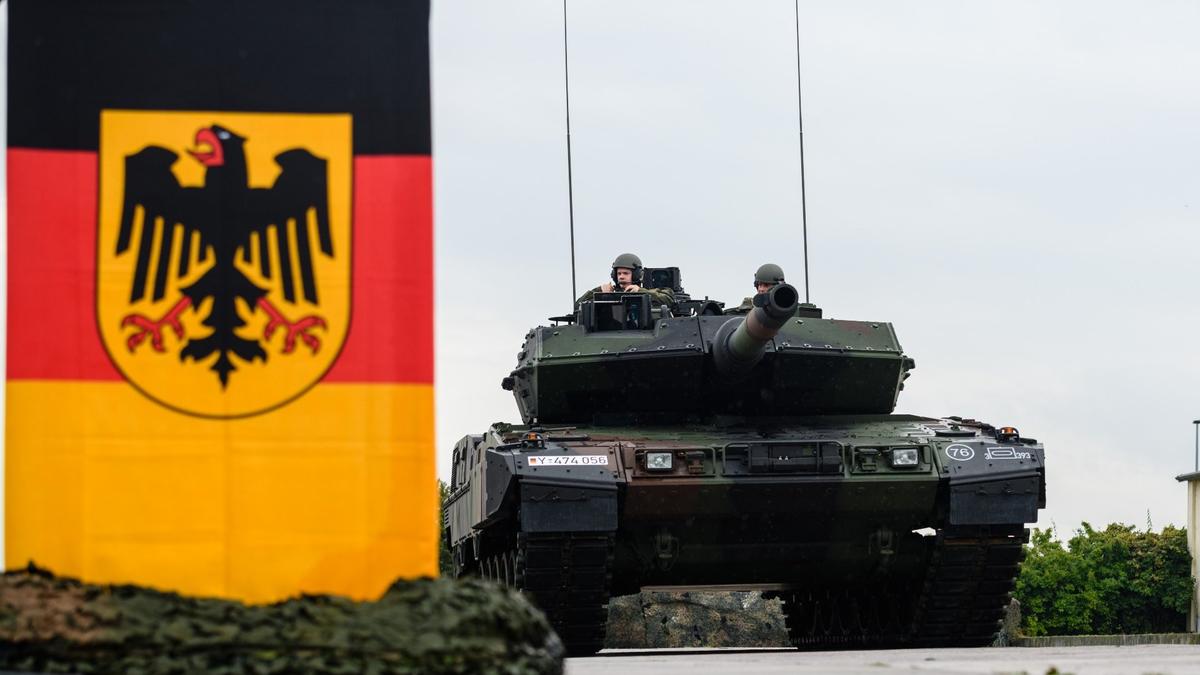On 25 January, the German government agreed to hand over its Leopard 2 tanks to the Ukrainian military. The decision was not easy for Berlin, and it took the Germans weeks of intense negotiations with other EU countries and the US to make it. Novaya Gazeta Europe spoke to German history expert Hanko Jürgens to find out the origins of Berlin’s hesitancy in arms export.

Dr. Hanco Jürgens
A researcher, teacher, and member of staff at the Institute for German Studies, University of Amsterdam. He published a book De vleugels van de adelaar (The wings of the eagle), in which he discusses Germany’s recent history
After a lot of negotiations, Olaf Scholz finally agreed to hand over tanks to Ukraine. Why do you think Germany hesitated so much to give weapons to Kyiv?
In fact, indecision on arms transfers dates back to December 2021, when a new government was formed in Germany under the leadership of Olaf Scholz. The cabinet was guided from the start by the idea that it was worth being more cautious about exporting German weapons and not sending them to crisis regions.
Germany produces the best tanks in Europe, and many other EU countries which could send them to Ukraine have them in service. But the problem is that you need German permission to do so. After all, if you send these Leopards to Ukraine, it means that the German industry has to set up the technical infrastructure to prepare them for combat, repair them if necessary, and so on. That can be quite a challenge for Germany. Because of that, even former German Defence Minister Christina Lambrecht was very hesitant about issuing new export permits.
So the origins of Germany’s current hesitation to supply arms to Ukraine lie in a situation that precedes the outbreak of war?
Yes. For example, before the invasion, Estonia wanted to export some German weapons to Ukraine, but Berlin blocked the decision. Also, already this summer Spain was planning to send Leopards to Ukraine but failed to do so as well. At first, it offered Kyiv about fifty vehicles, and then suddenly announced that it would not send anything because the tanks “were not well equipped and needed repairs”. And we never heard anything else about these tanks. Later it became clear that the reason was Berlin’s reluctance to authorise their transfer.
But in the end, it was finally decided to send Leopards to Ukraine.
Only in the last two weeks did the debates around those tanks become so extensive. For example, Poland said it was ready to send Leopards to Ukraine even without Berlin’s permission. And this is a very unusual development for international diplomacy because there are principles according to which the producing country must give permission for the weapons to be sent anywhere. So in a sense, international law with its peculiarities proved to be crucial.

Leopard tanks belonging to the Polish army near the Piłsudski Square in Warsaw. Photo: STR / NurPhoto / Getty Images
Do you think Germany’s hesitation to send weapons to Ukraine can be partly explained by the German Social Democrats’ (SPD) ties to Russia?
Several factors are important here. First of all, the categorisation of weapons is crucial for the SPD. Germany had previously sent weapons to Ukraine, but mainly of the defensive type, while Ukraine demanded more offensive weapons. The Social Democrats’ doubts were for sure caused by this differentiation.
Furthermore, I think that in the case of the SPD, history plays an important role, namely Willy Brandt’s New Eastern Policy (Ostpolitik), created for the relations with the USSR in the 1960s and rolled out in the 1970s. The concept proposed that Germany would pursue a “change of relationship through rapprochement”. In practice, this meant that West Germany maintained contact with all kinds of representatives of the authoritarian society and through them tried to influence that society. Eventually, Willy Brandt’s new eastern policy led to the fall of the Berlin Wall, after which the SPD considered the tactic effective and decided to stick with it. “Stop banishing Russia” was the title of an article written by a Social Democrat adviser in 2013.
The idea was that “we Germans know what it is like to lose a war, and we know that with a country in such a vulnerable position, good relations need to be established to avoid further catastrophes”.
This was how the SPD wanted to engage with Russia, a country that had lost the Cold War.
And there is also another aspect. From the perspective of some Social Democrats, NATO and the US have not always been reliable partners. German Chancellor Gerhard Schröder was convinced that the war in Iraq in 2003 was not necessary. At the time, Schröder, Jacques Chirac, and Vladimir Putin opposed a coalition of those who supported the war in Iraq, and this strengthened the bond between them on a personal level, and indirectly on the level of countries and elites.
In addition, it is important to remember here that Germany sees itself as a country in the middle of Europe, which has contacts with the West, but certainly also has many contacts with the East, particularly with Russia, which has been considered to be a part of the “Common European Home”, a concept used by many leaders, from Gorbachev to Kohl, from Putin to Annalena Baerbock. And Germany wants to maintain good relations with both the West and the East. So I think the mistake the Germans made in doing so was that the East for Germany meant only EU countries and Russia. You can see this in the fact that often in German universities courses about Eastern Europe are mostly about Russia. Ukraine and Belarus were not particularly important for Berlin.
Could Scholz’s decision to give tanks to Ukraine have been influenced, among other things, by pressure within the three-party German coalition?
Yeah, sure. There was huge pressure from the United States, Poland, of course, the Baltic States, but there was also huge pressure from the Greens and the Liberal Democrats. A few days ago Annalena Baerbock, the leader of The Greens, even said that if Poland asked for permission to send Leopards to Ukraine, she personally would give it, even though the stance of Scholz and his secretary of defence was not yet clarified. The critique of Scholz in the last weeks was so intense that SPD chairman Lars Klingbeil even asked German politicians to stop being so offensive towards each other and remember that the enemy is Putin, not Scholz.

Olaf Scholz during a discussion in Bundestag regarding the handover of Leopard tanks to Ukraine, 25 January 2023. Photo: Kay Nietfeld / picture alliance / Getty Images
Another common explanation for the hesitation of Germany to export weapons is its population’s aversion to anything militaristic after the Second World War.
Of course, this factor is also important. Scholz referred to it in his speech titled “Zeitenwende” (“Turning Point”) as early as 27 February 2022. From what he said about the situation in Ukraine, it was clear that big changes were coming in the politics of Germany itself and especially in the politics of the Social Democrats. Before the invasion, they had hoped to convince Putin solely by diplomatic means, but after 24 February it became clear that this was a failed strategy.
A simple example. A couple of days before Russia invaded Ukraine, Germany promised to send 5,000 helmets to Kyiv, while Ukraine requested 100,000. Although the sending of protective equipment in this amount was only stated as the first step of aid from Germany, many politicians at home and around the world laughed at this decision by Berlin. In fact, for Germany before 24 February, and for the Social Democrats in particular, even the decision to send helmets was a huge step. Now imagine the effort and rethinking of the basic positions it took to move from helmets first to anti-tank and anti-aircraft missiles and then to Leopards.
Can we say that another reason why Scholz was so hesitant lies in the fact that the German chancellor himself is an indecisive person?
There is a lot of talk about this. The media has even coined the word “Scholzing” to mean promising something quickly but then hesitating for a long time before the promise is fulfilled.
In a sense, waiting is a German political tradition. Angela Merkel, for example, could also wait quite a long time before making a final decision, waiting for some kind of change.
We could see this during the debt crisis when she was considering helping Greece. Everyone waited and waited and then suddenly in an instant, decisions were made.
But what is important is not so much Scholz’s personal factor, but the fact that today at least part of the Social Democratic faction in the Bundestag still believes that it is necessary not just to send weapons to Ukraine, but also to negotiate with Russia. One SPD member recently said that without diplomacy, weapons can only kill more Ukrainians because the conflict could escalate and the war could drag on even longer. And this position shows that Scholz within his own party is influenced by different points of view that he has to deal with.
Finally, there are opinion polls that have convinced the Chancellor that he can afford to spend quite a lot of time making a decision. Since about 40% of the population supported the idea of sending Leopards, and somewhere in the same proportion did not.
All these factors combined, I think, are the reason why it took so long for Germany to make this decision.
Join us in rebuilding Novaya Gazeta Europe
The Russian government has banned independent media. We were forced to leave our country in order to keep doing our job, telling our readers about what is going on Russia, Ukraine and Europe.
We will continue fighting against warfare and dictatorship. We believe that freedom of speech is the most efficient antidote against tyranny. Support us financially to help us fight for peace and freedom.
By clicking the Support button, you agree to the processing of your personal data.
To cancel a regular donation, please write to [email protected]

